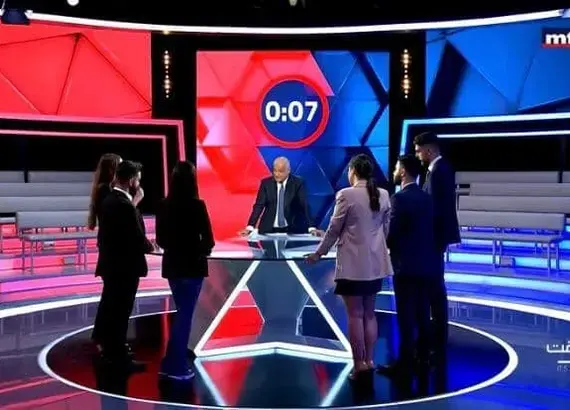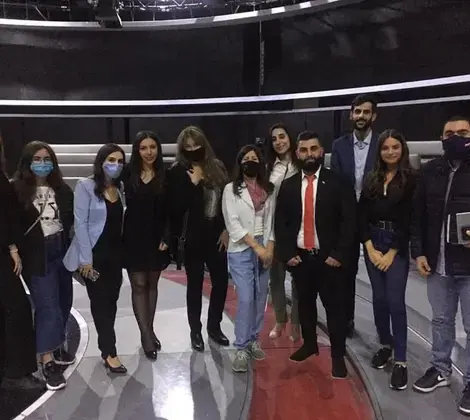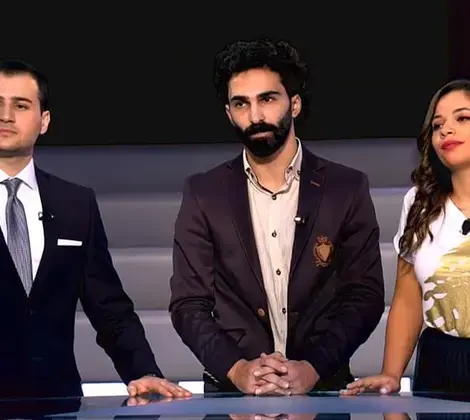
Success Story
Lebanese Youth Debate Finale Highlights the Challenge of Emigration
With their country already racked by corruption, economic depression, and a healthcare system crippled by the COVID-19 pandemic, Lebanese could not see how their situation could get any worse. Then came the devastating Port of Beirut explosion on August 4, 2020.

Sar el Wa2et, a weekly political talk show hosted by Marcel Ghanem, originally premiered in the fall of 2018 with a studio audience, mainly composed of Lebanese youth, who took turns participating in policy discussions with guest political leaders. Toward the end of each episode, two teams of three youth, trained by NDI with data-driven analysis and debate skills, would debate an issue raised during the program. As the program developed into its second season in September of 2019, NDI and MTV continued their training, recruiting 100 additional students to participate in the live youth debate competition. NDI also assisted MTV with developing objective criteria and a scoring system in order to award points to each team and debater, which determined who qualified for the quarter-finals, semi-finals, and final competition.
The program had to adapt to many challenges, including the coronavirus pandemic and the recent blast in Beirut, which happened while teams were in the studio for training sessions in preparation for the semi-finals and led to their postponement. Following the semi-finals, the program hosted the final debate between the qualifying teams on November 19, 2020.
Throughout the season, NDI and MTV hosted issue experts from civil society organizations in order to help the debaters gain new knowledge and access to credible sources and data that could help form their arguments. In order to prepare the youth for the final debate competition, NDI and Sar el Wa2et organized a meeting with an expert from the United Nations Development Program (UNDP) Arab Development Portal. When the time for the debate finale came, participants were fully equipped with the tools necessary to present their arguments and convey, not only to the judges but also to the entire nation, the reasons behind Lebanon’s emigration wave.

Team 1 argued against emigration. “The hardest thing one can do in the current state of our country is to try and convince someone not to leave Lebanon,” argued a member of Team 1. “However, leaving is not a sustainable solution. Lebanon is a country that is economically and politically open for reform… we should work on supporting local manufacturing and export our products to the world, and make use of our agricultural sector as well.”
The finale resulted in a victory for Team 1 and showcased the overall success of the program. Sar el Wa2et received an overwhelming amount of support following the broadcast of the episode. Lebanese parliamentary staff congratulated the success of the debates, which set a new high standard for politicians. The program aimed to not only develop young people’s professional debate skills, but also to showcase that through the use of fact-based arguments, Lebanon can overcome sectarian divisions and achieve tangible change. As the country continues to face new challenges and battle old ones, young Lebanese have proven that the door for change is still open, waiting to be flooded by a new generation.
NDI’s programming in Lebanon is supported by the National Endowment for Democracy.



